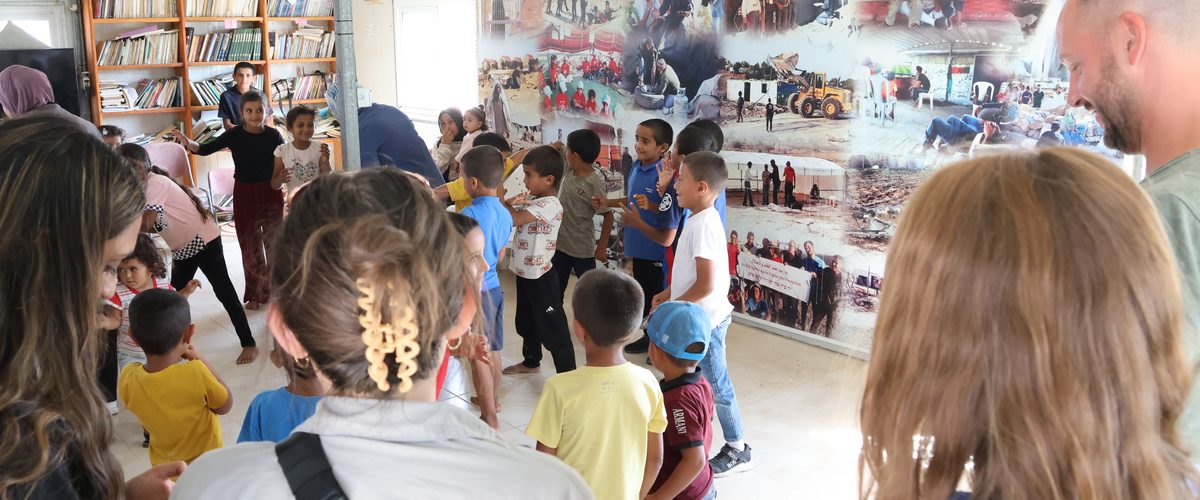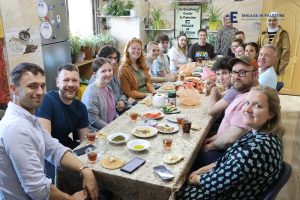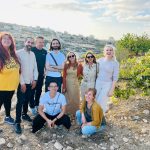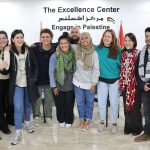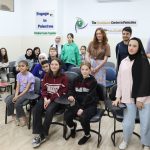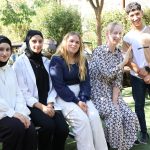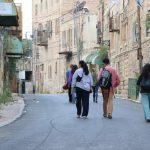Guided Tours in Palestinian Refugee Camps: Discover the heart of Palestinian life with Engage in Palestine’s guided tours of refugee camps in Hebron and Bethlehem. Our tours include visits to Al-Fawar, Alaroub, and Aida Palestinian refugee camps, offering an immersive daily life experience within these communities.
Whether you’re drawn to Palestinian history or humanitarian issues or seeking to broaden your perspective, our tours promise a unique and enlightening journey. During your visit, you’ll hear firsthand stories from Palestinian residents, gaining insight into their experiences of becoming refugees and their challenges in the camps. Our knowledgeable guides will provide translation and historical context, enriching your understanding of the significance of the Palestinian refugee camps.
Join us for valuable guided Tours in Palestinian Refugee Camps where you can connect directly with Palestinian narratives of struggle, displacement, and resilience. Whether you’re learning Arabic or simply curious, our tours foster meaningful connections with the Palestinian community. Come witness the strength and resilience of the Palestinian people and gain a deeper understanding of their challenges and aspirations.
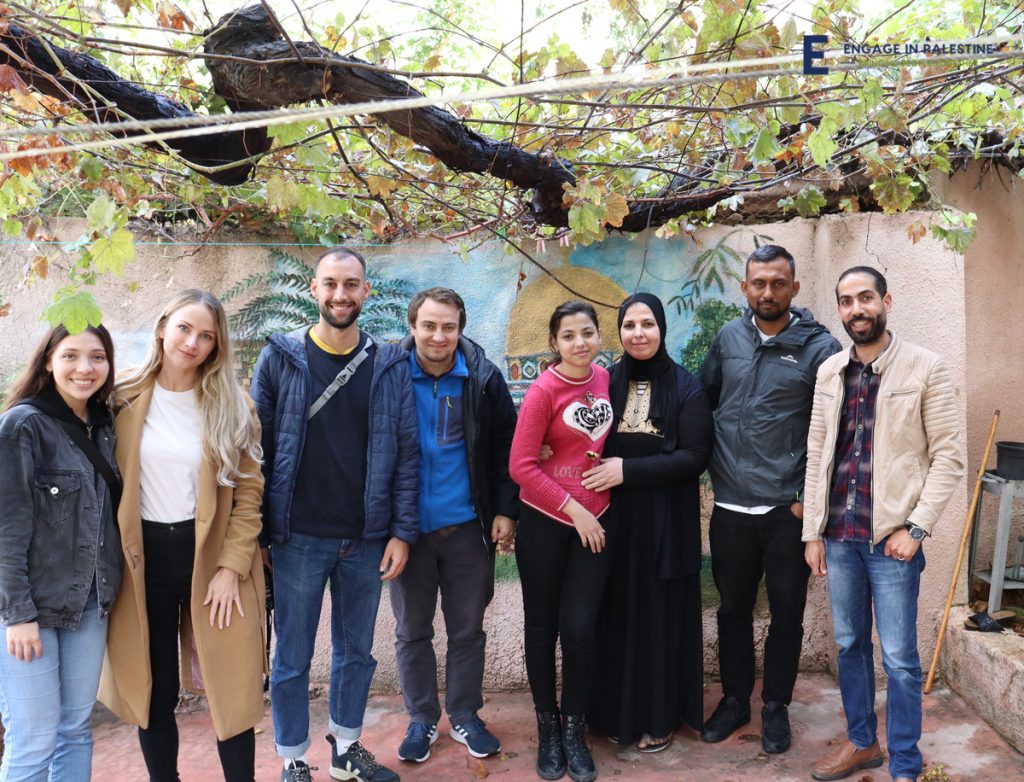
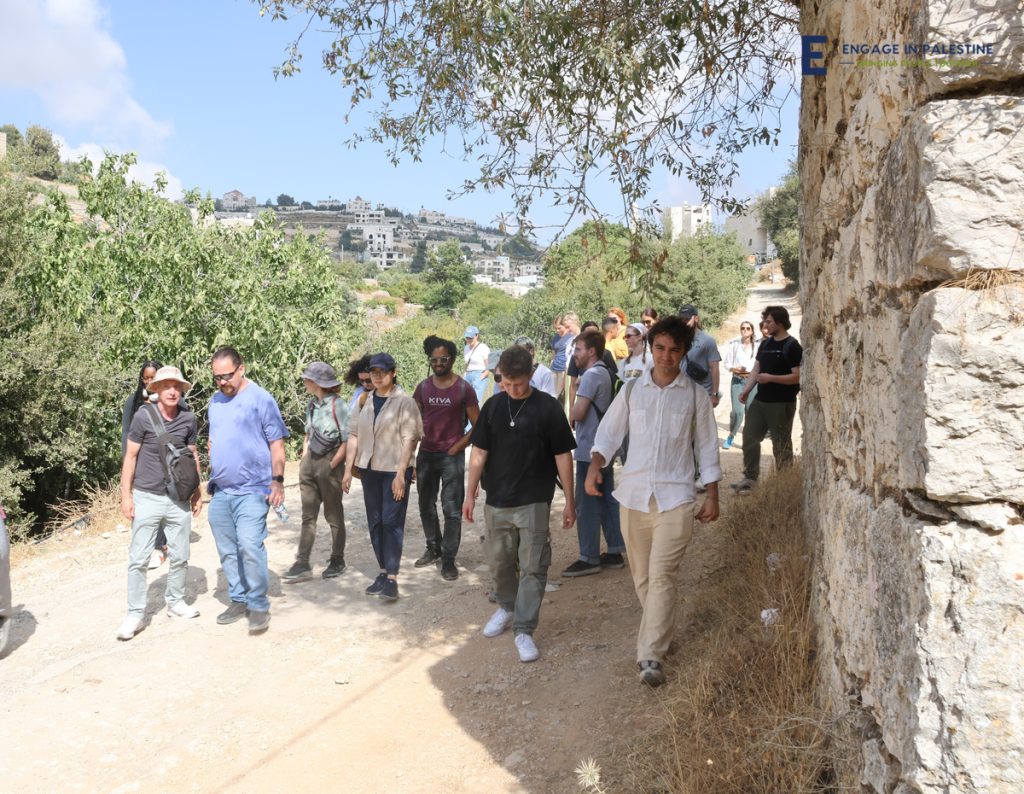
Table of Contents
What Languages Are Refugee Camp Tours Offered In?
Our guided tours in Palestinian refugee camps are available in both English and Arabic. Participants who have studied or are learning Arabic as a second language will have the opportunity to practice their speaking skills during the tour.
Overview of Guided Tours in Palestinian Refugee Camps
| Tour Location | Hebron, Palestine |
| Available Days of the Week | Saturday to Thursday |
| Duration of Daily Tours | 3-8 hours |
| Tour Types | Private tours Walking tours Day tours Customised Tours Guided tours |
| Language | Arabic English |
| Meeting Location | Hebron, West Bank |
| Accommodations for Overnight (if applicable) | Palestinian host family Hostel or hotel |
| Price of tours | 50€-100€ |
| Contact | WhatsApp: +972599479880 Email: Info@ecpalestine.org |
Palestinian Refugees Camps
Even though most Palestinian refugees live outside of Palestine by far, there are also internally displaced Palestinians. They were expelled from their lands during the war in 1948, during which Israel took control of many Palestinian towns, villages, and cities and destroyed many of them.
The Palestinians who lived there fled to other parts of the country. Most of them live now in refugee camps. In the West Bank, you can find 19 camps housing approximately 176,000 refugees; in Gaza, there are 12 camps with 478,000 refugees.
| Number of Registered Refugees | 871,000 Palestinian Refugee |
| Number of Refugees Camps | 19 Refugee camps |
| largest Refugees Camp in the West Bank | Balata Refugee Camp |
All Palestinian refugees in Palestine, as well as those outside, have, as a matter of binding international law and state consensus, according to the formula under Resolution 194, the right to return to their home and place of origin, restitution of properties in Palestine, and compensation for losses under law and equity. Palestinian refugees are expected to live in camps only temporarily.
Still, some of them have lived there for more than seventy years, and most of the Palestinians who live in camps today were born there. Some refugees are the fifth generation of Palestinian families who arrived in the camps in 1948.
Palestinian Refugee Camps in the West Bank
UNRWA provides services to 19 Palestine refugee camps in the West Bank. It does not administer or police the camps, as this is the responsibility of the host authorities. Here is the list of the Palestinian refugee camps in the West Bank, Palestine
- Aida Palestinian Refugee Camp
- Am’ari Palestinian Refugee Camp
- Aqbat Jabr Palestinian Refugee Camp
- Arroub Palestinian Refugee Camp
- Askar Palestinian Refugee Camp
- Balata Palestinian Refugee Camp
- Beit JibrinPalestinian Refugee Camp
- Camp No. 1 Palestinian Refugee Camp
- Deir ‘Ammar Palestinian Refugee Camp
- Dheisheh Palestinian Refugee Camp
- Ein el-Sultan Palestinian Refugee Camp
- Far’a Palestinian Refugee Camp
- Fawwar Palestinian Refugee Camp
- Jalazone Palestinian Refugee Camp
- Jenin Palestinian Refugee Camp
- Kalandia Palestinian Refugee Camp
- Nur Shams Palestinian Refugee Camp
- Shu’fat Palestinian Refugee Camp
- Tulkarm Palestinian Refugee Camp
Why do Palestinian Refugees live in refugee Camps?
Palestinians who fled their homes took their keys with them, thinking they would return soon. Instead, many of them still live in refugee camps. Palestinians have not been able to return to their homes because of Israel’s continuing refusal of their right of return and the silence of the international community and the United Nations on the issue.
The Israeli government does not recognize Palestinian refugees’ right to return. It continues to say that Palestinian refugees and their descendants cannot be allowed to return to the homes and communities from which they were displaced because their return would threaten the maintenance of a continued Jewish demographic majority in Israel.
Because of the lack of international action, Palestinian refugees remain to live in camps until this day. The living conditions are harsh, but it is not easy to get out. Buying a house is expensive, as is building a new one, and Israelis restrict the possibility of creating one. Nevertheless, the camps symbolize the continued hope of returning to their homes one day for some refugees. Refugee camps at least give the idea that the situation is temporary.
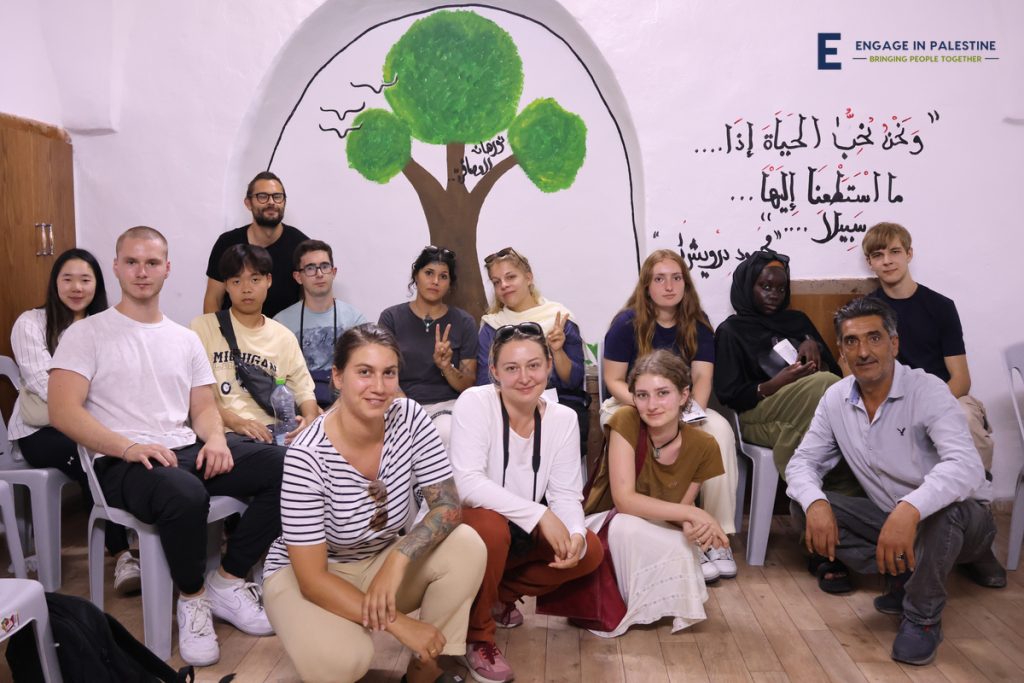
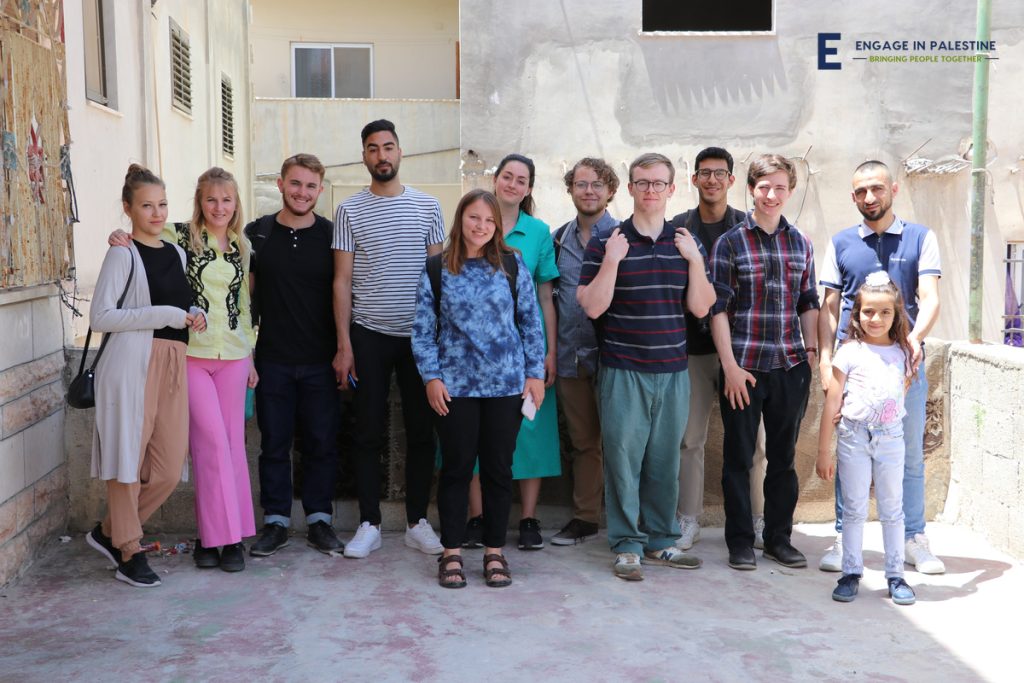
How Do Palestinian Refugees Live?
Palestinian Refugee camps are closed-off areas heavily guarded by Israeli soldiers. Whenever Palestinians go out or in, they can be subjected to heavy controls. Often, people are harassed at these checkpoints. As a result, the houses in refugee camps are cramped together. ‘My uncle lives in al Arroub camp. When you look at the neighbor’s house, you can see everything.
All the people around you will hear every sound you make. ’ Mamun, an English and Arabic teacher at the Engage in Palestine, explains no freedom or privacy whatsoever. Children have very few places to play and explore. The level of education is considerably lower in refugee camps, and there is limited access to social services. The situation has worsened since the number of camps supervised by UNRWA has reduced from 25 to 19.
Who Controls the Palestinian Refugee Camps?
Refugee camps for Palestinians are controlled by the United Nations Relief and Works Agency for Palestine Refugees in the Near East (UNRWA). The UNRWA operates in five areas: Jordan, Lebanon, Syria, the Gaza Strip, and the West Bank, including East Jerusalem.
UNRWA’s mandate encompasses Palestinians displaced by the 1947-1949 Palestine war – what Palestinians refer to as the Nakba; the expelling of more than 700,000 Palestinians from their houses and land, about half of Palestine’s pre-war population, subsequent conflicts, as well as their descendants. More than 7.4 million Palestinians are currently registered with the UNRWA. Because Palestinian refugees belong to the UNRWA, the UN Refugee Agency (UNHCR), the leading agency to aid all other refugees worldwide, has no control over Palestinian refugees.
The UNRWA is the only UN agency dedicated to helping Palestinian refugees from a specific region or conflict. However, the UNHCR has a clear mandate to assist refugees in eliminating their refugee status by local integration in the current country, resettlement in a third country, or repatriation when possible. Still, the UNRWA does not have this mandate. As such, millions of Palestinians remain stateless without the prospect of becoming naturalized anywhere.
Summary
Engage in Palestine guided tours provide a unique and enriching opportunity for international visitors to experience and understand the realities of life in Palestinian refugee camps. These tours, available in both English and Arabic, offer insightful interactions and firsthand stories from refugees, allowing Arabic learners to practice their language skills.
With flexible tour options, professional translations, and various accommodation choices, these tours are well-suited for anyone looking to deepen their understanding of Palestinian history and culture while contributing to the local community.
How to Book Your Tour?
For more information or to book a tour in a Palestinian refugee camp, please WhatsApp +972 599 479 880 or email info@ecpalestine.org.
Contact Us
If you have any questions, please feel free to contact us at:
WhatsApp:+972 599 479 880
Website: https://ecpalestine.org/
EC Website: https://excellencenter.org/
Instagram: https://www.instagram.com/excellence.center
Facebook page: https://www.facebook.com/ExcellenceCenter
Tags: Palestinian refugee camps tours, Refugee camp visits in Palestine, Tours to refugee camps in Palestine, West Bank Palestinian refugee camp tours
